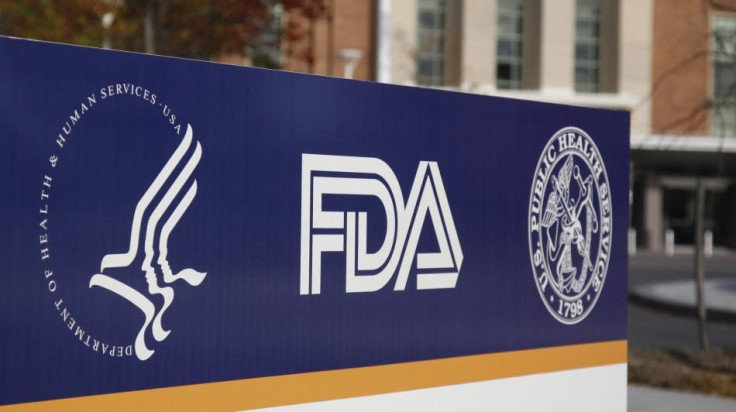Food Safety Loophole Remains Intact Under New FDA Standards: Experts

The process for reviewing chemicals added to the nation's food supply is being overhauled by the U.S. Food and Drug Administration, but food safety advocates warn that the changes won't prevent unsafe additives from making their way into your meals.
Hundreds of chemicals that the FDA has little power to regulate, and most consumers have likely never heard of, are secretly -- but legally -- being added into processed foods manufactured by some of the world’s biggest food producers.
“The public thinks that if something is in [their] food, it was well-tested and tested by someone other than the guy who invented it, and that’s not what they’re getting,” Jaydee Hanson, senior policy analyst at the Center for Food Safety, said.
The FDA’s plan to strengthen its protocols for reviewing chemicals for use in food will update the agency's safety assessment guidelines while ensuring consistency within its processes. The plan is “a step forward, but it isn’t a solution to” the problem of ingredients not approved by the FDA being used in food and other consumer products without the knowledge of the agency or consumers, Natural Resources Defense Council senior attorney Tom Neltner said.
A report released earlier this year by the council said many major food companies have for years taken advantage of a loophole in federal law that allows them to include chemicals that the FDA has not approved as safe for human consumption in a wide range of foods, without notifying the agency.
Scientists, which may be hired by the food companies themselves, must independently determine that a chemical is “Generally Regarded As Safe” (GRAS) in order for it to be exempted from the FDA’s standard pre-approval process for food ingredients.
An FDA spokesperson said via email that companies are required by law to rely on conclusions by “experts qualified by scientific training and experience to evaluate the safety of an ingredient” to deem a chemical GRAS, but added that they are not required to make their scientific data public.
“The [GRAS] exemption allows manufacturers to make safety determinations that the uses of their newest chemicals in food are safe without notifying the FDA,” the NRDC report states. “The agency's attempts to limit these undisclosed GRAS determinations by asking the industry to voluntarily inform the FDA about their chemicals are insufficient to ensure the safety of our food.”
To produce the report, the NRDC says it “reviewed public records, the company websites, and trade journals to identify chemicals that appear to be marketed in the U.S. pursuant to an undisclosed GRAS determination, i.e., without notification to the FDA.” Neltner estimates that the number of such chemicals could in fact be as high as 1,000.
Chemicals cited in the report range from chrysanthemum extract, manufactured by NutraMax, to Health Texapon K 12 P PH, manufactured by BASF Cognis Nutrition.
In some cases, chemicals identified in the report were voluntarily submitted for FDA review. The agency raised concerns about their safety but did not have the authority to stop the companies from using them in food, according to the NRDC.
“We’ve found that when the FDA is asked to look at them, 20 percent of them are rejected,” Neltner said. “The FDA asks tough questions, and when they reject a claim, companies can still sell products containing [the chemical] despite these concerns. And there are no assurances that the companies have addressed the concerns.”
The FDA does have the authority to take action if any ingredient used in food is determined to be unsafe, but a number of lawsuits that raise questions about the safety of specific food ingredients have not resulted in meaningful action on behalf of the agency, Neltner said.
“Regardless of whether an ingredient is approved for use as a food additive or it falls under GRAS, the safety standard is the same,” an FDA spokesperson said via email. “That is, there must be a reasonable certainty of no harm under the intended conditions of its use.”
Hanson says that the FDA should be reviewing chemicals independently instead of relying on companies to make determinations based on independent research.
“The FDA needs to be more critical of the data they get from companies,” Hanson said. “They’ve been sitting on a revision of the way they handle GRAS for 15 years,” he added.
The food industry is taking a step toward greater transparency. The Grocery Manufacturers Association, the nation's biggest food industry trade group, said in a press release on Aug. 28 that it will create a database of information about food additives used in a wide range of foods.
The information will be provided to the FDA, but it will not be made available to the public. Hanson criticized the plan for applying only to chemicals already used in foods, not those introduced in the future.
“We’ve got a broken system,” Neltner, the Natural Resources Defense Council attorney, said. “No other country in the developed world allows a chemical to be added directly to food without making sure it’s safe.”
© Copyright IBTimes 2024. All rights reserved.




















